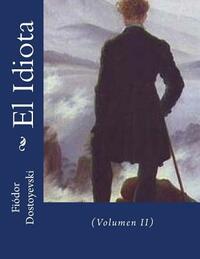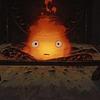Take a photo of a barcode or cover
challenging
dark
reflective
slow-paced
Plot or Character Driven:
Character
Strong character development:
No
Loveable characters:
No
Diverse cast of characters:
Complicated
Flaws of characters a main focus:
Yes
I will need to give this a second read now that I'm more familiar with the characters, but also for someone who rarely re-read, I think this book deserves a lot more of my attention that I had given
dark
informative
mysterious
reflective
sad
tense
medium-paced
Plot or Character Driven:
Character
Strong character development:
Yes
Loveable characters:
Yes
Diverse cast of characters:
Yes
Flaws of characters a main focus:
Yes
challenging
dark
mysterious
slow-paced
Plot or Character Driven:
A mix
Strong character development:
Complicated
Loveable characters:
Yes
Diverse cast of characters:
No
Flaws of characters a main focus:
Yes
challenging
dark
funny
mysterious
reflective
tense
slow-paced
Plot or Character Driven:
A mix
Strong character development:
Complicated
Loveable characters:
Yes
Diverse cast of characters:
No
Flaws of characters a main focus:
Complicated
challenging
dark
emotional
funny
reflective
sad
tense
slow-paced
Plot or Character Driven:
A mix
Strong character development:
Yes
Loveable characters:
Yes
Diverse cast of characters:
No
Flaws of characters a main focus:
Yes
dark
emotional
funny
reflective
sad
slow-paced
Plot or Character Driven:
A mix
Strong character development:
Complicated
Loveable characters:
Complicated
Diverse cast of characters:
Complicated
Flaws of characters a main focus:
Yes
'I feel then,' he said one day to Rogozhin in Moscow, 'I feel then as if I understood those amazing words━ ‘There shall be no more time.”
9/10 for me. I struggled a bit in the beginning with this book, and by 400-something pages I put it down for some time. But when I picked it up again, I did with a newfound motivation, and the (rather chaotic yet entertaining) series of events and incredible dynamics between the characters absolutely engulfed me back in. I read the last 500 pages in two-three days.
Each time I read a Dostoievski book, the most intrinsic feeling of gratitude within me grows stronger and stronger. I'm just so grateful that he existed. That he shared his art with the world, even if it wasn't easy at times.
One thing I absolutely love about him, that of course was present in this book, is his expertise in crafting characters, whether complex or simple, ordinary or extra-ordinary; regardless of social status and even gender, thing I'm most appreciative of. It's a true talent, bringing to life characters so human they almost feel real, from just words printed on paper; their motivations, their beliefs (or lack of).
The other quality of his that truly stands out in this book is his mastering of emotions. The way he depicts the human experience. The never-ending range of human emotions and sensations, he knows of, and he masterfully uses all the posible vocaublary and expressions at hand to make us feel them in our bones. The feverish hope, the hand-trembling fears, the innate devotion, the unyielding compassion that our protagonist has, that, ultimately, not always brings him good.
Also, I adored how he mixes philosophy, (so ever-present, so imbued in each and every one of his books) with comedy and stupidity. There's always this comedic relief character in his books that I'm most appreciative of. With Dostoievski, you can question the meaning of existence and get a good laugh in the process. Lebedev and General Ivolgin, with their constant and compulsive lying, add a light-hearted feeling to the sordid atmosphere, that at times, reigns in the background of the events.
I'm most fascinated by the dichotomy between Rogozhin and Lev Nikolayevich, and between Aglaya and Natasia.
I love me a drama-filled plot, it keeps me entertained and glued onto the pages, and this book is just that. At times dense with profound questions and reflections, yet somehow always keeping the dynamism alive, despite being slow-paced. But, I understand why this book may not work for everyone. It can be slow, and not everyone enjoys slow-paced books - and that's ok.
I thank everyday that Dostoievski existed. Even if it was 200 years ago. Truly a gift from life; his gift to the world.
“It's life that matters, nothing but life—the process of discovering, the everlasting and perpetual process, not the discovery itself, at all.”
dark
reflective
slow-paced
Plot or Character Driven:
A mix
Strong character development:
Complicated
Loveable characters:
Complicated
Diverse cast of characters:
Complicated
Flaws of characters a main focus:
Yes
challenging
dark
reflective
sad
tense
slow-paced
Plot or Character Driven:
Character
Strong character development:
Complicated
Loveable characters:
Complicated
Diverse cast of characters:
No
Flaws of characters a main focus:
Yes
It is such a pity, because this could have been a great novel. In fact, the first part of it, which ends with Nastasya (what a character !!!) leaving with Rogozhin, as well as all the interactions between the prince and Rogozhin, were truly amazing.
However, when the point of focus shifts and we no longer follow the trajectories of Nastasya, Rogozhin and the prince - three characters compulsively drawn to one another while being fundamentally unreconciled - the novel falters.
It still has some great fragments, but even those seem unconnected to the whole. I was under the impression that Dostoyevsky wanted to explore the prince’s interaction with all kinds of sinners - from lowlife scoundrels and hypocrites to harmless drunks and members of the bourgeoisie that are filled with pride and do not, under any circumstances, want to look ridiculous. As a result, the narration is not tightly-packed, it lacks direction and meanders for pages on end. It seemed like the author wanted to integrate some scenes / musings at any cost, without consideration for the overall pacing and direction of the story. For example, we spend a large chuck of the book focusing on Ippolit - to an extent that he seems like the main character - before he is abandoned after serving his purpose of demonstrating the prince’s starkly different approach to being ill. Likewise, we follow Aglaia, and we witness a “romance” blossom between her and the prince. Honestly, this whole relationship seemed so artificial that it greatly detracted from my enjoyment - you understand what Aglaia sees in the prince - but the prince’s attachment to her was not at all convincing (contrary to his feelings for Nastasya). I felt as though a relationship between them “had” to be formed, so as to trigger the confrontation between the two women in the life of the prince.
Had the plot focused solely on the three principal characters, it would have been exceptional - a modern tragedy. Instead, by the time I reached the ending I was frustrated and the foreshadowed finale had a much less important impact than it could have had.
(part 1 - chapter 16 /// part 2 - chapter 5 /// part 2 - chapter 9 /// part 3 - chapter 6-7 /// part 4 - chapters 11, 12)
However, when the point of focus shifts and we no longer follow the trajectories of Nastasya, Rogozhin and the prince - three characters compulsively drawn to one another while being fundamentally unreconciled - the novel falters.
It still has some great fragments, but even those seem unconnected to the whole. I was under the impression that Dostoyevsky wanted to explore the prince’s interaction with all kinds of sinners - from lowlife scoundrels and hypocrites to harmless drunks and members of the bourgeoisie that are filled with pride and do not, under any circumstances, want to look ridiculous. As a result, the narration is not tightly-packed, it lacks direction and meanders for pages on end. It seemed like the author wanted to integrate some scenes / musings at any cost, without consideration for the overall pacing and direction of the story. For example, we spend a large chuck of the book focusing on Ippolit - to an extent that he seems like the main character - before he is abandoned after serving his purpose of demonstrating the prince’s starkly different approach to being ill. Likewise, we follow Aglaia, and we witness a “romance” blossom between her and the prince. Honestly, this whole relationship seemed so artificial that it greatly detracted from my enjoyment - you understand what Aglaia sees in the prince - but the prince’s attachment to her was not at all convincing (contrary to his feelings for Nastasya). I felt as though a relationship between them “had” to be formed, so as to trigger the confrontation between the two women in the life of the prince.
Had the plot focused solely on the three principal characters, it would have been exceptional - a modern tragedy. Instead, by the time I reached the ending I was frustrated and the foreshadowed finale had a much less important impact than it could have had.
(part 1 - chapter 16 /// part 2 - chapter 5 /// part 2 - chapter 9 /// part 3 - chapter 6-7 /// part 4 - chapters 11, 12)






